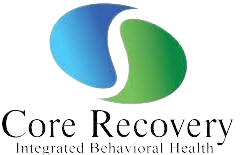What Makes MAT Special as a Treatment Option for Addiction?
Studies have shown patients with opioid addiction or alcohol addiction have better outcomes when using medicated-assisted treatment over traditional abstinence-based methods. What makes MAT so special? For starters, patients using MAT have shown a decreased risk of relapse into opioid or alcohol use. Additionally, medicated-assisted treatment has also been effective in preventing infectious diseases like HIV. If you, or someone you know, is struggling with alcohol dependence or opioid use disorder, MAT can make the difference between staying sober or relapsing early in the process. Keep reading to learn more about medicated-assisted treatment and how Core Recovery can help.
What is MAT?
Medicated-assisted therapy (MAT) uses a combination of counseling and behavioral therapies along with medicines such as Buprenorphine, Naltrexone, or Naloxone to successfully treat substance abuse disorders. Studies have shown that MAT can help prevent or reduce the occurrence of opioid overdose, the need for strictly monitored detoxification in a recovery center, and help sustain recovery long-term. As a patient, this means being able to see your family regularly during treatment, getting your life back on track faster, and a greater chance of keeping it there.
How Do the Medications Work?
Opioids are strong pain relievers that are all too often prescribed after major injuries or surgeries, like wisdom-teeth removal or a torn rotator cuff. When used correctly and under supervision, it can provide pain relief when over-the-counter meds like acetaminophen (Tylenol) or ibuprofen (Advil) just aren’t cutting it. Unfortunately, it’s just as easy to use them incorrectly, which can rewire the brain causing cravings or sickness when there aren’t enough opioids in the blood stream. Those cravings often lead to needing more drugs in the system to achieve the same high – and that can lead to devasting consequences. In the 20 year span between 1999 and 2019, close to half a million people died from opioid overdose.
Medications like Naloxone, Buprenorphine and Naltrexone help lessen the effects of withdrawals, reduce the cravings and the likelihood for relapse and opioid overdose. MAT medications provide the brain the input it’s used to receiving from harmful opioids without side effects like physical and mental impairment. When combined with therapy techniques, the medications help patients rid their body of the opioids and learn how to stand strong in the face of the cravings and urges. While some patients may be on the medication for a short period of time, others may need the doses long-term to help maintain control over their addiction.
What Are the Benefits of Mat?
During treatment, a qualified medical provider will combine the correct dose of treatment with practices such as mindfulness and Cognitive Behavioral Therapy (CBT) to help the patient suffering from substance abuse through both the physical and mental symptoms of withdrawal and build a long-term plan for staying sober.
While some who do not fully understand how MAT works share concerns that patients are trading one drug for another, medications like Naloxone, Buprenorphine and Naltrexone allow time for the brain to heal by lessoning the cravings and chance of relapse. While on the medication, patients typically show no adverse effects to their judgement or mental capability. The dosage of medication and length of time a patient might be on them is completely dependent on the patient and their circumstance.
One research paper noted a “statistically significant and strong” correlation between the decrease in opioid overdoses and the increase in MAT treatments in Baltimore. A study by researchers at the University of Texas Health Science Center reported half of participants self-reporting drug abstinence for 18 months following MAT therapy. At 3.5 years after therapy, the number reporting abstinence was 61 percent and less than 10 percent at that point met the criteria for drug dependence.
If qualified, participating in a MAT program under the supervision of a licensed medical provider can help patients take control of their life and live the life they have been wanting to, whether that’s being present for their family and kids, or reaching for their dream career.
Can Anyone Prescribe the Medications?
When seeking treatment for opioid or alcohol abuse, consider looking for MAT certified programs, like the program at Core Recovery. These programs will have both therapists and medical providers involved that are trained in using a combination of medications and traditional therapy methods to combat the effects of opioid and alcohol withdrawal. In addition, the medical provider will know how to determine the best medication and dosage for the situation.
Another reason patients will want to seek a medical provider trained in medicated-assisted therapy is to prevent unintended side effects. Someone who is used to working with Naloxone, Suboxone, Buprenorphine, and Naltrexone will be aware of which other medications may have adverse side effects when combined with treatment.
Ongoing Research
The brain is the most complex organ in our body, which means research on how it works and the effect of therapies and drugs are constant. What works for one patient doesn’t always work for another, and this research can often provide alternative treatment options. The CDC is currently in its final phases of its newest research study on MAT. You can follow along here.
What If I Relapse?
Evidence suggests that 40-60 percent of adults suffering from addiction will relapse in their first year after treatment. Many think this is because they stop participating in after care, or because their treatment has been phased down. Whatever the reason for relapse, seeking treatment and putting in the work to get better will help. Recovery and sobriety starts by making the call, and continues one day at a time
Ready to take control of your life? Take the next step by finding out more about MAT and if the program is right for you.







 In CA By O360®
In CA By O360®